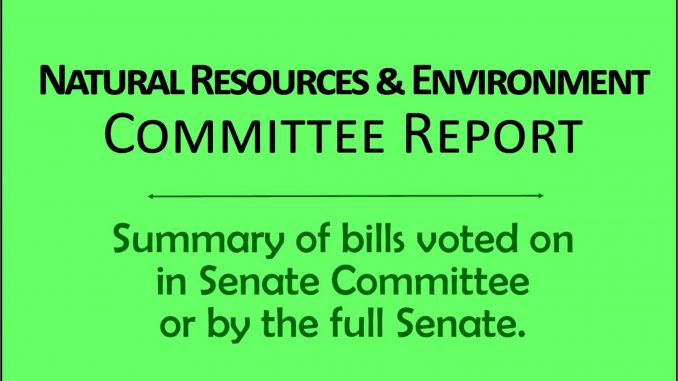
On this page
COMMITTEE ACTION:
HF 2369 – Lifetime trout fishing stamp for people over 65
HF
2369 directs the Department of Natural Resources (DNR) to establish
a lifetime trout fishing stamp for people over 65. Iowans over 65 are already
eligible to purchase a lifetime fishing license. A trout stamp is required for
those who want to fish trout. Under the bill, those with a lifetime fishing
license can have a lifetime trout stamp as well, instead of having to purchase
the stamp each year.
[2/13: 11-0 (Absent: Celsi,
Sweeney)]
FLOOR ACTION:
SF 537 – Coyote hunting using infrared sighting
SF 537 would allow the use of artificial light for hunting coyotes. Current state law prohibits artificial light while hunting in most situations. Artificial light is often used by poachers. Additionally, the use of the light at night does not provide full view of the target; safe hunting practices call for the hunter to only shoot if they can identify what is behind the target.
The bill allows the use of artificial light to only infrared light sources. This would prevent the use of spotlights, which some poachers use to “freeze” the animal. The infrared light source would allow those hunting coyotes better visibility when hunting at night. Night is the preferable time to hunt coyotes because that is when they are the most active. Night hunting is allowed under current law, but the prohibition on artificial light means hunting only happens during full moonlight or with snow cover.
The bill prohibits the use of
infrared light sources during shotgun or muzzleloader deer seasons. This should
address some of the concerns regarding poaching that could happen with the
allowed use of infrared light sources. On final passage, the Senate concurred with
a House amendment to also prohibit infrared light sources in bow deer hunting
seasons.
[3/11: 45-1 (No: Celsi; Absent: Breitbach,
Brown, Feenstra, Hogg)]
HF 2475 – Review of sewer and water distribution line extension by DNR
HF
2475 would allow the permitting of sewer or water distribution
system line extensions for local utilities when the utility retains a qualified
licensed engineer who reviews the plans to ensure that they meet standards
adopted by law. Legislation passed last year already allows this process for
utilities that employ a qualified licensed engineer. This bill will
address utilities that retain engineers for these services. The committee
adopted an amendment providing for an immediate effective date for the
legislation.
[3/11: 46-0 (Absent: Breitbach, Brown,
Feenstra, Hogg)]
